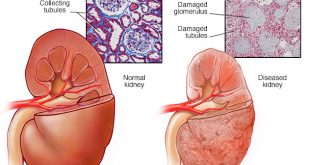Introduction
Chemicals in urine can cause the formation of kidney stones. Changes in your diet might help, especially when you know what type of kidney stone you have. The most common types of kidney stones are calcium and oxalate. The other type of kidney stone is uric acid. By knowing the type of kidney stone, a proper eating plan can be done. People with gout and diabetics are prone to have uric acid stones. It is advisable for diabetic patients to control their diet in order to reduce the risk of getting kidney stones.
A few tips that might help in preventing the stone formation or recurrence:
- Drink Adequate Water
Try harder to drink more fluids. Increase slowly until you reach about 8-10 glasses of water daily. If you have a problem with your kidney function or any medical condition that leads to water retention, then you have to limit fluid intake according to your doctor’s advice. You will know if the water you are drinking is enough when your urine is light and clear in colour. - Reduce Sodium/Salt Intake
Taking too much sodium/salt will indirectly increase the chances of getting calcium oxalate kidney stones. Sodium/salt can increase the amount of calcium excreted in the urine. Foods that are high sodium/salt are:- Salted fish
- Processed foods
- Canned foods
- all type of sauces
- Budu, cencalok, tempoyak
- Fast foods
- Salt/Table salt
- Limit intake of Purine-Rich Food
Some foods that contain higher purines should be avoided for those who are at risk of getting uric acid kidney stones. Go slow on food with a moderate amount of purine. List of food with high and moderate purine content:HIGH
(150 – 1,000 mg per 100 g serving)MODERATE
(50-150 mg per 100 g serving)- Internal organs
- herring
- mussels
- yeast
- fish eggs/ caviar/roe
- sardines
- Meat extracts
- anchovies
- Red meat (mutton, veal, bacon)
- Seafood (crab, prawn)
- salmon
- turkey
- trout
- goose
- haddock
- asparagus
- spinach
- nuts and beans
- Limit Intake of Food high in Oxalate
Calcium oxalate stones develop when oxalate binds with calcium. The formation of calcium oxalate takes place in the urine that is acidic (low pH). Our body can also produce oxalate. Foods high in oxalate should be avoided if you have a history of calcium oxalate stones or at high risk for developing these stones.List of High Oxalate Foods
Chocolate
Beets
String beans
Celery
Blackberries
Spinach
Parsley
Draft beer
Eggplant
Sweet potatoes
Rhubarb
Strawberries
Soy productsThose who are prone to calcium oxalate stones should avoid grapefruit juice and dark colas. Cranberry juice might help in preventing urinary tract infections, but it contains oxalate that can lead to stone formation.
- Be Cautious with Calcium Supplementation.
Calcium that comes naturally in foods should not be avoided unless your doctor asks you to stop. Calcium supplementation has been linked to kidney stones and must be used with caution. If you are at risk of getting kidney stones, please get advice from a doctor before taking any calcium supplementations. The risk can be reduced if you take the supplement with meals.
Even though you have to eat your meal with caution, you can still enjoy a well-balanced meal everyday with careful planning based on Malaysian Food Pyramid.
Use more natural herbs and seasoning like lime, lemon, spices and lemongrass to enhance the flavour of food and reduce the use of sodium/salt in cooking.
| Last Reviewed | : | 3 May 2016 |
| Writer | : | Datin Nor Sharita bt. Mohd. Saad |
| Accreditor | : | Pn. Mageswary a/p Lapchmanan |
 PENDIDIKAN PESAKIT Kementerian Kesihatan Malaysia
PENDIDIKAN PESAKIT Kementerian Kesihatan Malaysia
